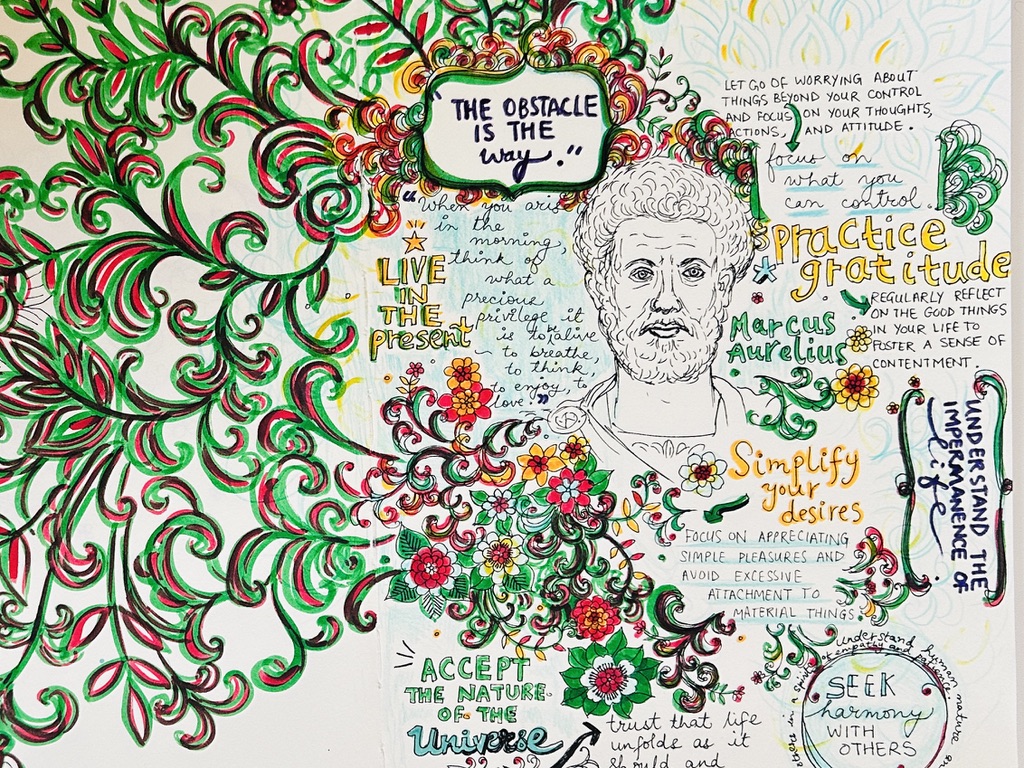Marcus Aurelius, the king who had it all, yet decided to be mindful and led a life aligned with virtues and morality. The greatest of the Roman Emperors, and perhaps the wisest of them all. As part of my Master’s program in Happiness Studies, we are required to emulate someone we consider a role model. We are expected to do so for about two weeks, which is the time necessary to ‘install’ a new habit, as cited in several scientific studies.
So be it! Tathastu to that!
Tal suggests a method called mimentic leadership, which involves three steps. First, of course, consists in learning about the person, understanding their behavior and attributes, and then embodying what you admire the most. The final step involves application by mimicking, by actually incorporating it into our own day-to-day lives. Creating rituals, reminders, and repetitions. The three R’s of change. That’s how the human mind learns new behaviors.
I could have picked up anyone, in this matter, even my amazing late grandmother; she was my hero. Whenever I sit there in the sun, on a wintry afternoon, I feel I am becoming her, well, almost. She was the kindest, yet strictest person I have ever known—someone who would go about her day with courage and love.
Learning about Marcus Aurelius brought up so many of his ideals. Many of which I have managed to imbibe on my journey so far, over the past several years. The ones that stood out are, of course, in this illustration. He was a stoic to the core. His morning ritual of affirming that no matter what or who he encounters during the day, he will stay true to his values remains significant even today. There is so much power in that.
Journaling his thoughts and his observations was a key aspect of his personality. Being grateful and focusing on the present moment, and regularly reflecting on the good, fosters a sense of contentment. Focusing on what one can control helps to let go of worrying about things beyond our control and instead focus on our thoughts, actions, and attitude.
He also encourages us to accept the nature of the universe and trust that life unfolds as it should. Another aspect of him that stands out is his ability to simplify his desires. He also tells us to seek harmony with others. To understand human nature and strive to work with others in a spirit of empathy and patience.
The obstacle is the way. This is so meaningful and very relevant. Over time, we often realize this and connect the dots to see that it holds. Disappointment, or ‘this point meant’ that it is only a bump, a bend in the journey, not an end. What a powerful reminder!
Most of all, understanding the impermanence of life and appreciating everything holds the key to unlocking goodness and helping us escape the misery that has trapped our minds.
Through this exercise, I remind myself that leadership begins in the everyday: how we greet challenges, how we relate to others, and how we cultivate our inner lives. Marcus Aurelius may have been the greatest of Roman emperors, but his wisdom endures because it speaks to the small empires we all rule—our thoughts, our choices, and the way we live each day.

If you’d like to explore this reflection in more depth, I’ve put together my full write-up on Mimetic Leadership and Marcus Aurelius as part of my Master’s in Happiness Studies.
Download the full PDF here
Leave a Reply